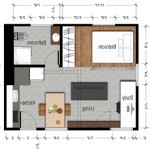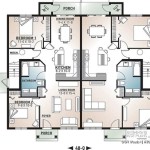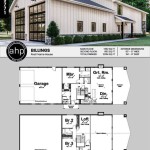Plans To Build A House
Building a house is a significant undertaking that requires careful planning and execution. The plans you choose will lay the foundation for your home's design, functionality, and overall livability. Whether you're working with an architect or designing the house yourself, it's crucial to have a well-defined set of plans to guide the construction process.
1. Determine Your Needs and Budget
Before you start designing, it's essential to assess your needs, lifestyle, and budget. Consider the number of bedrooms and bathrooms you require, the preferred layout, and any special features you desire. Additionally, establish a realistic budget that includes not only the construction costs but also the cost of land, permits, and other expenses.
2. Gather Inspiration and Research
Once you have a clear idea of your requirements, gather inspiration from various sources such as magazines, online galleries, and visiting model homes. Research different architectural styles, materials, and floor plans to find ideas that resonate with your taste and preferences. Take note of design elements that appeal to you and consider how they can be incorporated into your own home.
3. Hire an Architect (Optional)
If you don't have the necessary experience or knowledge to design your own house, consider hiring an architect. A professional architect can translate your ideas into detailed plans, ensuring that your home meets your specific needs, complies with building codes, and optimizes space and functionality.
4. Create a Floor Plan
The floor plan is the blueprint for your home's layout. It shows the arrangement of rooms, hallways, and other spaces. Start by creating a rough sketch, outlining the overall shape and size of the house. Then, refine the plan by adding walls, doors, windows, and other architectural features. Pay attention to the flow of traffic, natural light, and the relationship between different rooms.
5. Develop Elevations and Sections
Elevations are drawings that show the exterior walls of your house from different perspectives. They provide a clear understanding of the home's massing, proportions, and architectural details. Sections are vertical drawings that cut through the house, revealing the interior spaces and the relationship between different floors.
6. Include Details and Specifications
In addition to the main plans, it's crucial to include detailed specifications that provide information on materials, finishes, fixtures, and other elements of the house. This documentation ensures that contractors have a clear understanding of your design intent and can accurately estimate the cost of construction.
7. Seek Professional Review
Before submitting your plans to the local building department, consider having them reviewed by a professional engineer or architect. They can provide valuable feedback, identify potential issues, and help ensure that your plans comply with building codes and industry standards.
Conclusion
Creating a comprehensive set of house plans is essential for a successful building project. By carefully considering your needs, researching different options, and following the outlined steps, you can develop plans that will guide the construction process and bring your dream home to life. Remember, the time and effort you invest in the planning phase will pay off in the long run, ensuring a well-designed and functional home that meets your expectations.

Easy To Build Houses And Floor Plans Houseplans Blog Com

Easy To Build Houses And Floor Plans Houseplans Blog Com

Easy To Build Houses And Floor Plans Houseplans Blog Com

Affordable House Plans Our Est To Build Blog Homeplans Com

5 Tips To Build Your Dream Home And Stay On Budget Dfd House Plans Blog

Est House Plans To Build Simple With Style Blog Eplans Com

Est House Plans To Build Simple With Style Blog Eplans Com
What Is The Est Type Of House To Build Blog Floorplans Com

Est House Plans To Build Simple With Style Blog Eplans Com

Est House Plans To Build Simple With Style Blog Eplans Com








